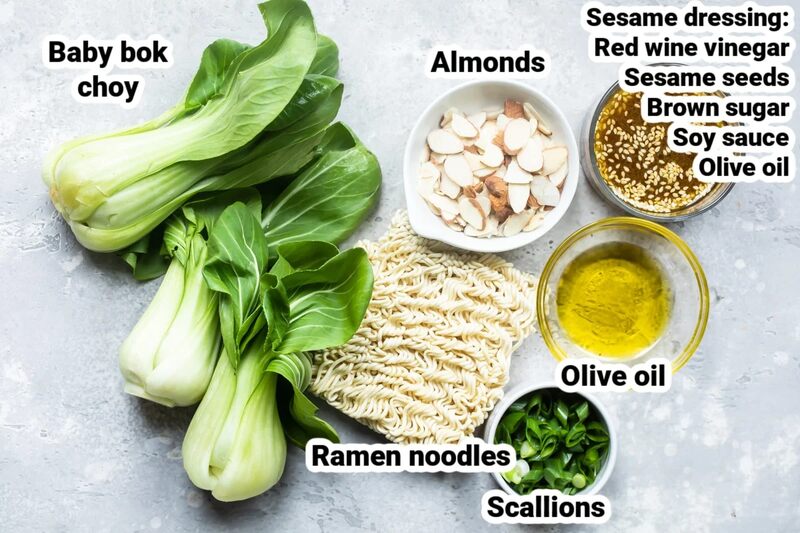Bok choy, which is part of the cruciferous vegetable family, has a strong reputation for being highly nutritious. This leafy green provides significant amounts of vitamins, minerals, and antioxidants that are crucial to maintaining good health. In this article, we will study the nutrition details of bok choy and look at its different health advantages.
Rich Source of Vitamins and Minerals
Bok choy is a vegetable that contains many nutrients, providing significant amounts of vitamins and minerals needed for good health. It has high levels of vitamins A, C, and K along with calcium, potassium, and folate which are important for supporting immunity to diseases as well as maintaining strong bones and helping cells work correctly.
- Variety of Antioxidants: Apart from vitamins A, C, and K, bok choy contains various antioxidants like lutein and zeaxanthin, which promote eye health and protect against age-related macular degeneration.
- Iron Absorption: The vitamin C content in bok choy enhances the absorption of iron from plant-based foods, making it beneficial for individuals following vegetarian or vegan diets.
Promotes Heart Health

Including bok choy in your meals can boost heart wellness. This leafy green has elements like potassium and folate, which aid in managing blood pressure and lowering the chances of developing heart ailments. The antioxidants found in bok choy can also assist with reducing cholesterol levels, enhancing heart well-being.
- Sodium Consideration: Bok choy is naturally low in sodium, making it a heart-friendly option for individuals aiming to reduce their sodium intake and manage blood pressure levels effectively.
- Nitrate Content: Bok choy contains nitrates, compounds that have been associated with improved cardiovascular health by promoting vasodilation and enhancing blood flow.
Supports Digestive Health
Bok choy contains a good amount of fiber, which is very important for keeping the digestive system healthy. Fiber helps in having regular bowel movements and avoiding problems like constipation. It also supports a good balance of bacteria in your gut that aids digestion. Eating bok choy often can assist with digestion and reduce problems such as bloating or indigestion.
- Gut Microbiota: The fiber in bok choy acts as a prebiotic, nourishing beneficial bacteria in the gut and promoting a balanced microbiome, which is crucial for digestive health and overall well-being.
- Hydration: Bok choy has a high water content, contributing to hydration and promoting optimal digestion by aiding in the movement of food through the digestive tract.
Anti-Inflammatory Properties
Bok choy has strong antioxidants, like vitamin C and beta-carotene, that fight inflammation. These antioxidants can help deal with oxidative stress and decrease the level of inflammation in your body. If you eat bok choy regularly, it might ease signs of conditions caused by inflammation such as arthritis while also supporting good health generally speaking.
- Inflammation Reduction: Regular consumption of bok choy may help reduce the risk of chronic inflammatory diseases by neutralizing free radicals and modulating inflammatory pathways in the body.
- Joint Health: The anti-inflammatory properties of bok choy may benefit individuals with joint pain or stiffness by reducing inflammation in the joints and supporting mobility.
Supports Bone Health
Vitamin K from Bok choy is very important for good bone health and calcium processing. It helps keep your bones strong and healthy, reducing the chance of osteoporosis or fractures. Eating bok choy can help you have better bone density and strength in your skeleton.
- Calcium Absorption: Vitamin K in bok choy aids in the absorption of calcium, promoting bone mineralization and reducing the risk of osteoporosis, especially in postmenopausal women who are more susceptible to bone loss.
- Fracture Prevention: Consuming foods rich in vitamin K, such as bok choy, may help lower the risk of fractures by improving bone density and integrity.
Boosts Immunity
Bok choy is a great source of vitamin C, which can boost your immune system. Vitamin C helps in creating more white blood cells that fight against infections and sicknesses. If you regularly eat bok choy, it may strengthen your immunity and lower the chances of getting common colds or flu-like symptoms.
- Seasonal Support: Incorporating bok choy into your diet during cold and flu season can provide an extra boost to your immune system, helping you stay healthy and resilient against seasonal viruses.
- Wound Healing: Vitamin C in bok choy plays a crucial role in collagen synthesis, supporting wound healing and tissue repair, which is essential for maintaining overall health and immunity.
Supports Weight Management
Bok choy is a type of leafy vegetable that has low calories but many nutrients, so it's very good for diets focused on managing weight. It contains lots of fiber which helps you feel full and controls your hunger, supporting efforts to lose weight. Also, the vitamins and minerals in bok choy are important for the general function of metabolism which can assist in keeping a healthy weight.
- Calorie Density: Bok choy has a low calorie-to-nutrient ratio, meaning it provides essential nutrients with minimal calories, making it a satisfying option for those watching their calorie intake while still meeting their nutritional needs.
- Blood Sugar Regulation: The fiber content in bok choy helps stabilize blood sugar levels by slowing down the absorption of glucose, making it a valuable addition to diabetic-friendly diets.
Versatile Culinary Ingredient

Bok choy has flexibility in cooking. This vegetable is good to eat raw, like in salads or stir-fried dishes, and also can be cooked by putting it into soups, stews, and other foods. Its taste is not strong and its crunchy feel goes well with many different types of cooking styles which makes it a liked choice for people who love food variety.
- Quick Cooking: Bok choy cooks quickly, making it a convenient option for busy weeknight meals or last-minute additions to dishes like stir-fries and noodle soups.
- Texture Contrast: The tender stems and crunchy leaves of bok choy add texture and freshness to dishes, enhancing both visual appeal and mouthfeel.
Incorporating Bok Choy Into Your Diet
Consider using bok choy in your everyday meals after knowing about its nutritional value. If you cook it quickly with garlic and ginger or put it into good vegetable soup, bok choy will improve the taste and healthy elements of what you eat. Try making different dishes to find out more about this flexible and good-for-you vegetable.
- Raw Salad Addition: Add thinly sliced bok choy leaves to your favorite salad mix for a refreshing crunch and added nutrients, such as vitamin C and fiber.
- Stir-Fry Staple: Include chopped bok choy stems and leaves in stir-fry dishes with other vegetables and protein sources for a colorful and nutritious meal option.
Conclusion
So, bok choy is not only tasty but also very healthy for you. It has many good things like vitamins and minerals that can help with different body functions. If you want to protect your heart and bones, strengthen your immunity, or improve digestion - this green leafy vegetable should be a regular part of what's on your plate.












